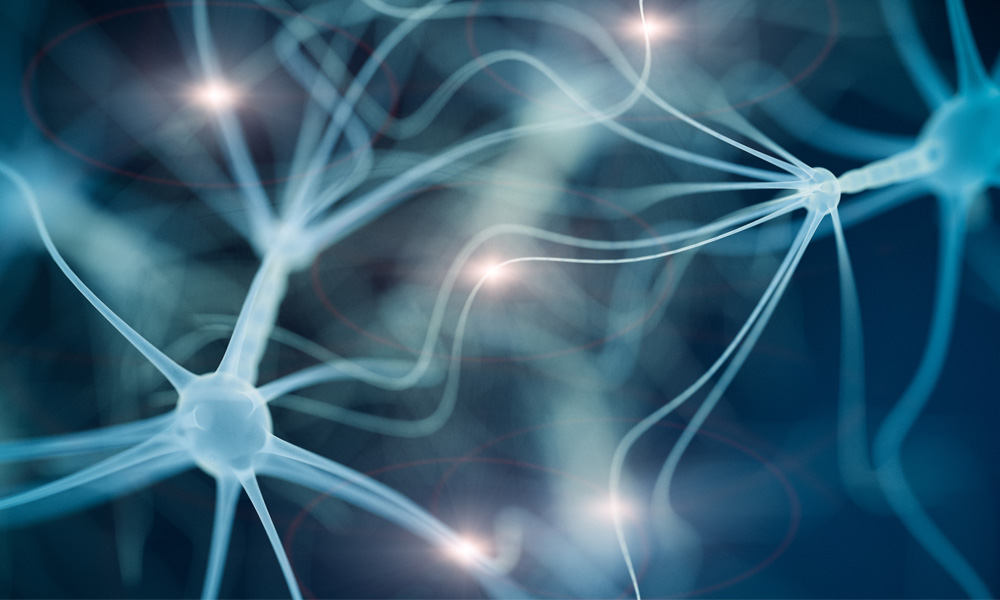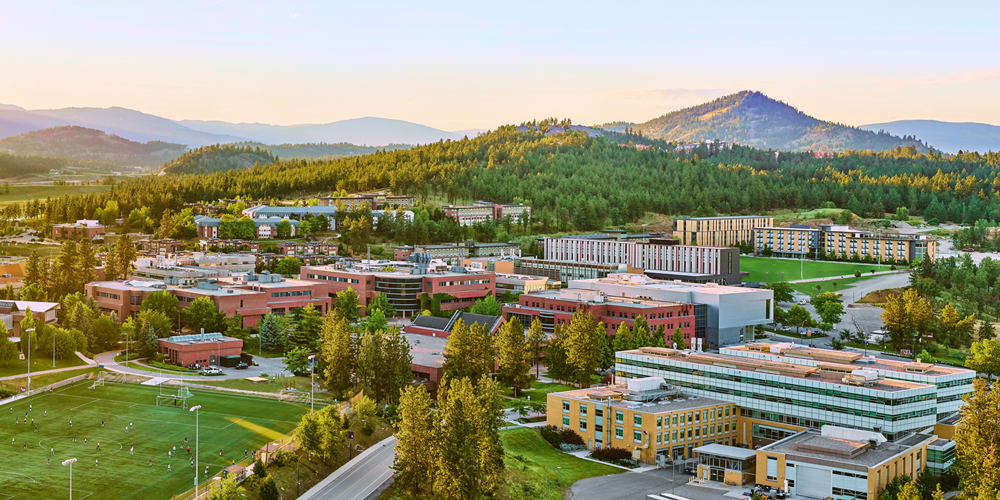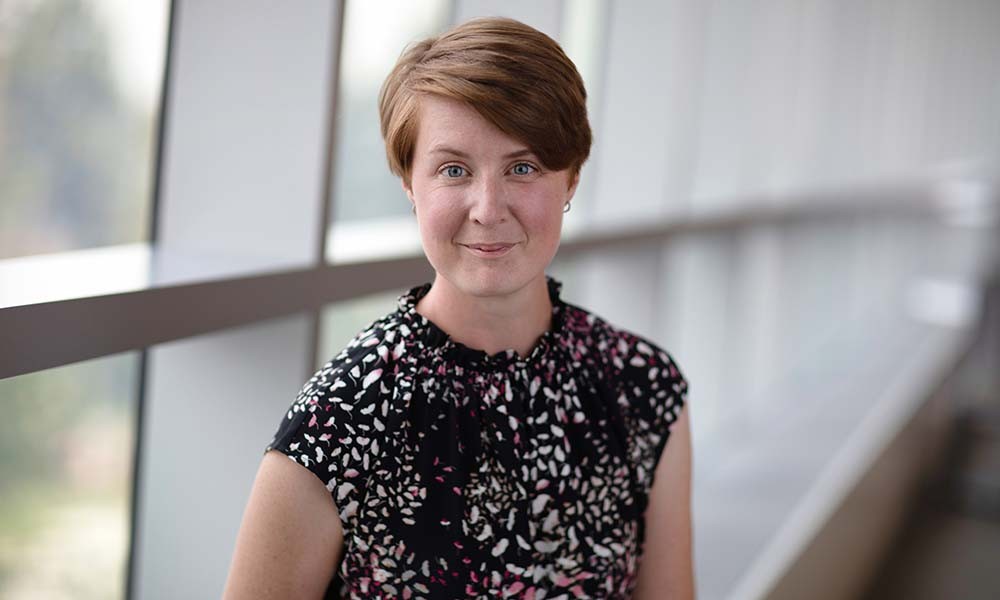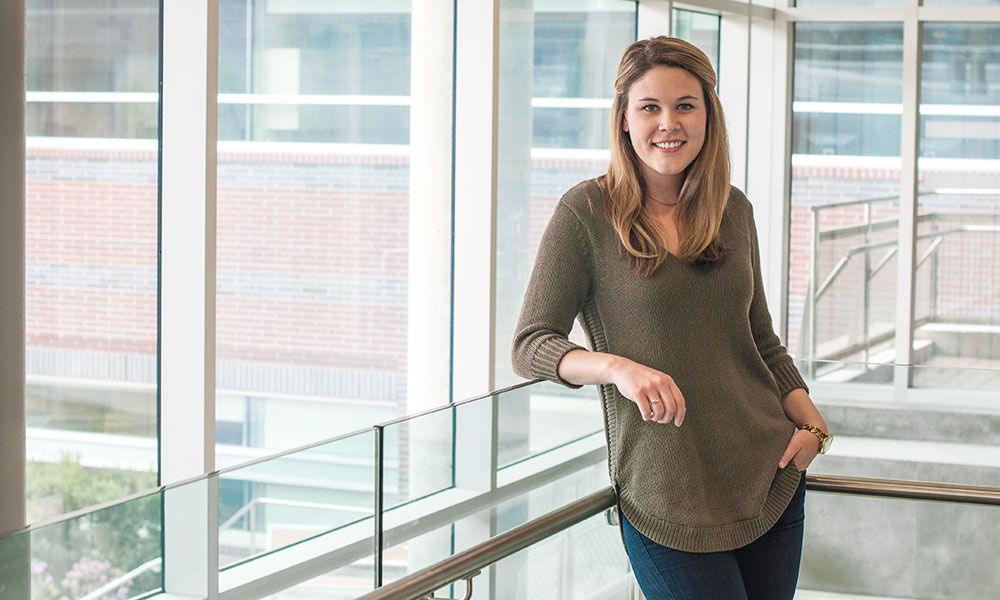Master of Arts (MA)-PhD Track, Doctor of Philosophy (PhD)-Psychological Science

Irving K. Barber Faculty of Arts and Social Sciences
| Program | Components | Length |
|---|---|---|
| Master of Arts (MA)-PhD Track | Coursework and thesis | 24 months |
| Doctor of Philosophy (PhD)-Psychological Science | Coursework, comprehensive projects, and Dissertation | 48 months |
Why study Psychological Science at UBC Okanagan?
The Department of Psychology offers graduate education leading to a PhD specialization in psychological science. The MA (PhD Track) is a prerequisite for students with an undergraduate degree who do not have an MA psychological science degree.
Our psychological science degree provide students with theoretical, practical, and analytical expertise, as well as experience in the application of scientific results to real-world problems. Our dynamic faculty and graduate students are engaged in a variety of research projects, many in collaboration with partners in government, non-profit agencies, or industry.
Our developmental learning model promotes research through close mentoring relationships with faculty, who instill in students a passion for lifelong learning that applies to their chosen career paths.
inclusion at the Department of Psychology
Our Department strives to create and maintain an environment that reduces barriers to undergraduate and graduate study, where everyone can thrive. We also aim to bring equity to research and the clinical practice of Psychology. We have three groups dedicated to these aims: the Action for Inclusion, Diversity, and Equity (AIDE) Committee; the Psychology Allyship, Community, and Equity (PACE) committee, and the Reconciliation in Action committee.
Students enrolled in the MA (PhD Track) program will learn to apply skills and methods in the science and practice of psychology, as well as undertake practical research in the field.
Formal milestones for the MA program include:
- preparing, presenting, and defending a research proposal
- collecting and analyzing data
- writing and defending the thesis
- ideally, publishing the research results
MA students also become paid Teaching Assistants during their studies in order to gain valuable teaching experience and to learn effective communication strategies.
Our psychological science graduate program allows students to conduct research alongside world-renowned experts in areas such as abnormal, cognitive, health, social, and personality psychology. Topics range from neurocognitive functioning and social relationships to happiness and well-being. Students will conduct scientific research through close mentoring relationships with faculty.
The program is designed for students with a background in psychology or a closely related field who wish to conduct original psychological research under the mentorship of one of our faculty. Upon completion of the program, students will have received training in advanced statistics and research methods and will be proficient in evaluating and carrying out psychological research. The program prepares students for careers in academia, teaching, and research.
This MA specialization requires minimum completion of 30 credits, which includes:
- 12 credits of thesis work
- 18 credits of coursework
Additional coursework may be required at the discretion of the supervisory committee. Exceptional MA students may be able to transfer to the PhD program after one year if they meet program requirements and are approved by the Psychology Graduate Studies Committee.
For more information, please see our Psychological Science Handbook.
The PhD is an advanced research degree program that requires original and substantive contributions to the advancement of the field of psychology.
Graduates of the psychological science PhD program will be prepared for careers that involve conducting independent research, consulting, and/or teaching in academia, government, or industry.
Formal milestones for the Psychological Science PhD program include:
- passing comprehensives
- preparing, presenting, and defending a research proposal
- undertaking advanced data collection and applying sophisticated analytical methods
- completing and defending a dissertation
- ideally, communicating research results via conference presentations and publications in scientific journals
PhD students also become paid teaching assistants during their studies in order to gain valuable teaching experience and to enhance their communication skills.
Minimum PhD program requirements include:
- completion of up to 18 credits of coursework, selected with the approval of the student’s PhD committee
- successful completion of comprehensives
- successful defence of the doctoral dissertation (PSYO 699)
Additional coursework may be required by a student’s supervisory committee.
Research and Supervisors
Research Areas
Graduate students can pursue these and other faculty research and teaching interests:
- Psychopathology
- Cannabis & psychedelic psychotherapy
- Cognitive psychology
- Computer-mediated communication
- Creativity
- Deception
- Forensic psychology
- Health psychology
- Laterality / brain hemisphere interactions
- Neuropsychology
- Positive psychology / happiness and well-being
- Social and personality psychology
- Statistics and research methods
- Rural mental health
Supervisors
The success of our graduate program depends in large part on a good mentor match between students and research supervisors.
The Department of Psychology faculty members may hold Clinical or Psychological Science degrees — however, faculty can supervise students in either grad program.
No applicant will be considered for admission to the program until a faculty member of the Psychology department has agreed to supervise the student’s proposed research.
Graduate student supervisor. Not considering Psychology graduate students for September 2025 intake.
Graduate student supervisor. Not considering Psychology graduate students for September 2025 intake.
Graduate student supervisor. Will consider Psychology grad students (Psychological Science stream) for Sept 2025 intake.
Graduate student supervisor. Considering grad students(Clinical Psychology & Psychological Science streams)for Sept '25
Graduate student supervisor. Considering grad students(Clinical Psychology & Psychological Science streams)for Sept '25
Graduate student supervisor. Will consider Psychology grad students (Psychological Science stream) for Sept 2025 intake.
Graduate student supervisor. Not considering Psychology graduate students for September 2025 intake.
Graduate student supervisor. Considering grad students(Clinical Psychology & Psychological Science streams)for Sept '25
Graduate student supervisor. Will consider students for September 2025 intake, for the Clinical Psychology stream.
Graduate student supervisor. Will consider co-supervision only, Clinical Psychology grad students for Sept 2025 intake.
Graduate student supervisor. Considering grad students(Clinical Psychology & Psychological Science streams)for Sept '25
Graduate student supervisor. Will consider Psychology grad students (Psychological Science stream) for Sept 2025 intake.
Graduate student supervisor. Not considering Psychology graduate students for September 2025 intake.
Graduate student supervisor. Not considering Psychology graduate students for September 2025 intake.
Graduate student supervisor. Not considering Psychology graduate students for September 2025 intake.
Graduate student supervisor. Will consider Psychology grad students (Clinical Psychology stream) for Sept 2025 intake.
Graduate student supervisor. Not considering Psychology graduate students for September 2025 intake.
Graduate student supervisor. Considering grad students(Clinical Psychology & Psychological Science streams)for Sept '25
Facilities and Labs
Our research centres and facilities include the following, and associated psychology faculty can be found in the Supervisors section above:
- The Centre for Obesity and Well-being Research Excellence (The CORE)
- The Centre of the Study of Services to Children and Families
- Cognition and Substance Use Lab
- Emotions Dynamics Lab
- Health Psychology Lab
- Psychology Clinic
- The Human Sexuality Lab
- The Neuroplasticity, Imagery, and Motor Behaviour Lab
- The Psychopathology Lifespan and Neuropsychology (PLAN) Laboratory
- The Social, Emotional, and Equity Development Lab (SEED Lab)
- Social Interaction and Perception Lab
- Therapeutic, Recreational, and Problematic Substance Use Lab
- Truth and Trust Lab
Students and Alumni
Connect with your peers
Psychology graduate students lead and/or participate in a variety of organizations.
- The UBC Okanagan Psychology Course Union is a team of dedicated psychology students who offer resources and organize events to help others succeed within the field of psychology. The psychology course union is committed to helping further learning opportunities for students that share the same passion for psychology.
- The Psychology Graduate Student Association (PGSA) is a group of Psychology graduate students who seek to improve the well-being and experience of undergraduate and graduate psychology students by hosting graduate school workshops, connecting incoming graduate students with mentors, and working with faculty members on the mentorship of undergraduate students.
- The AIDE Committee is a group of graduate students and faculty in the Psychology Department at UBC Okanagan who are working towards addressing issues of equity, diversity, and inclusion in academia and the field of psychology.
- Follow our Psychology Instagram to keep up to date on events and connect with our community on campus and beyond.
Theses and Dissertations
Find all UBC Okanagan student publications on the University’s digital repository for research and teaching materials.
EXPLORE STUDENT PUBLICATIONS
Careers and Outcomes
Graduates of the psychological science PhD program will be prepared for careers that involve conducting independent research, consulting, and/or teaching in academia, government, or industry.
- Professor
- Lecturer
- Research Director (for non-profits, government agencies, companies)
- Program Officer (for funding agencies)
- Director of Program Evaluation
- User Experience Researcher
- Data Scientist
- Policy Analyst
- Behavioral Science Consultant
- Popular Science Writer/Communicator
Tuition and Funding
Tuition
For official tuition and fee information, see the academic calendar’s page on standard masters degrees and standard doctoral degree programs.
Funding Opportunities
Incoming and continuing Psychology MA and PhD students may be funded through a combination of internal sources such as Teaching Assistantships, Okanagan Graduate Research Scholarships, and/or Research Assistantships. Many Psychology students also apply for, and receive external awards (i.e. Tri-Council funding).
Currently, all full-time current and incoming PhD students (domestic and international) at UBC Okanagan will be provided with a minimum funding package for up to the first four years of a PhD. Effective September 2025, the minimum funding guarantee will increase to $25,000 per year (from a mix of sources) for up to the first four years of a PhD. Please review this policy and eligibility requirements.
There is no university-wide minimum funding package for Master’s students at UBC Okanagan, at present. However, our Psychology MA students are typically funded (amounts vary annually) for up to two years through Teaching Assistantships and the Okanagan Graduate Research Scholarships. Several students are also external award-holders (i.e. Tri-Council), and some also may have Research Assistantships (not guaranteed, and amounts are dependent upon supervisor research funding).
Graduate students must demonstrate satisfactory performance throughout their MA and PhD programs to maintain eligibility for various funding sources.
UBC Okanagan Graduate Research Scholarships
UBC Okanagan Graduate Research Scholarships (ORGS) are administered by the College of Graduate Studies through funding made available from the University Budget. UBC ORGS are awarded annually to entering and eligible continuing graduate students who are registered in a full-time research-based program at UBC Okanagan. Annual amounts may vary. Learn more about eligibility, deadlines by visiting the College of Graduate Studies website.
GRADUATE ENTRANCE AWARD
The Irving K. Barber Faculty of Arts & Social Sciences offers a $15,000 merit-based entrance scholarship to three exceptional individuals entering their first year of thesis-based graduate studies under a Psychology supervisor from the Irving K. Barber Faculty of Arts & Social Sciences, or an Interdisciplinary Graduate Studies program with a supervisor who is a member of the Irving K. Barber Faculty of Arts & Social Sciences.
All applicants to Irving K. Barber Faculty of Arts & Social Sciences graduate programs who have submitted an application by January 31 will be automatically considered for the award. No additional application is required. Successful applicants will be notified by March 15.
Assistantships
Teaching Assistantships (TA)
Paid TA positions allow graduate students to develop skills in teaching, supervision, facilitation, and student assessment. Teaching assistants may lead seminars, help teach undergraduate courses, or assist in student evaluations and marking. Teaching assistants are mentored by their supervisor and via the Centre for Teaching and Learning. TA working conditions and wages are governed by the BC Government Employees Union Okanagan (BCGEU-O) collective agreement. BCGEU Salary scales are available here.
Research Assistantships (RA)
As paid research assistants, graduate students may assist their supervisor or other researchers in conducting high-level research, which often contributes to the student’s thesis. RAs are typically funded by the given supervisor’s external grants, contracts, and sometimes, other sources of funding. Amounts paid for RA positions are highly variable.
SCHOLARSHIPS
UBC Awards
The College of Graduate Studies administers merit-based graduate awards at the Okanagan campus. The College manages a number of award competitions each year and administers payment of all internal awards and selected external awards.
External Awards
All prospective and continuing graduate students (Domestic and International) are expected to explore and continuously apply for relevant, available external awards and fellowships, including awards offered by Canada’s three research councils: CIHR, NSERC and SSHRC.
Graduate scholarships and awards may also be available from foundations, private companies or foreign governments (check with your country’s education authority).
Global and Close-Knit
At UBC Okanagan, you gain all the benefits of attending a globally ranked, top 5% university while studying in a close-knit learning community. 50% of graduates, from all across the globe, choose to stay in the region.

Discover the Okanagan
A diverse natural region with sandy beaches, beautiful farms, vineyards, orchards and snow-capped mountains, the Okanagan is an inspirational landscape perfect for those seeking leisure or outdoor adventure.
UBC's Okanagan campus borders the dynamic city of Kelowna, a hub of economic development with a population of more than 150,000 people— the fourth fastest-growing population in Canada.





















